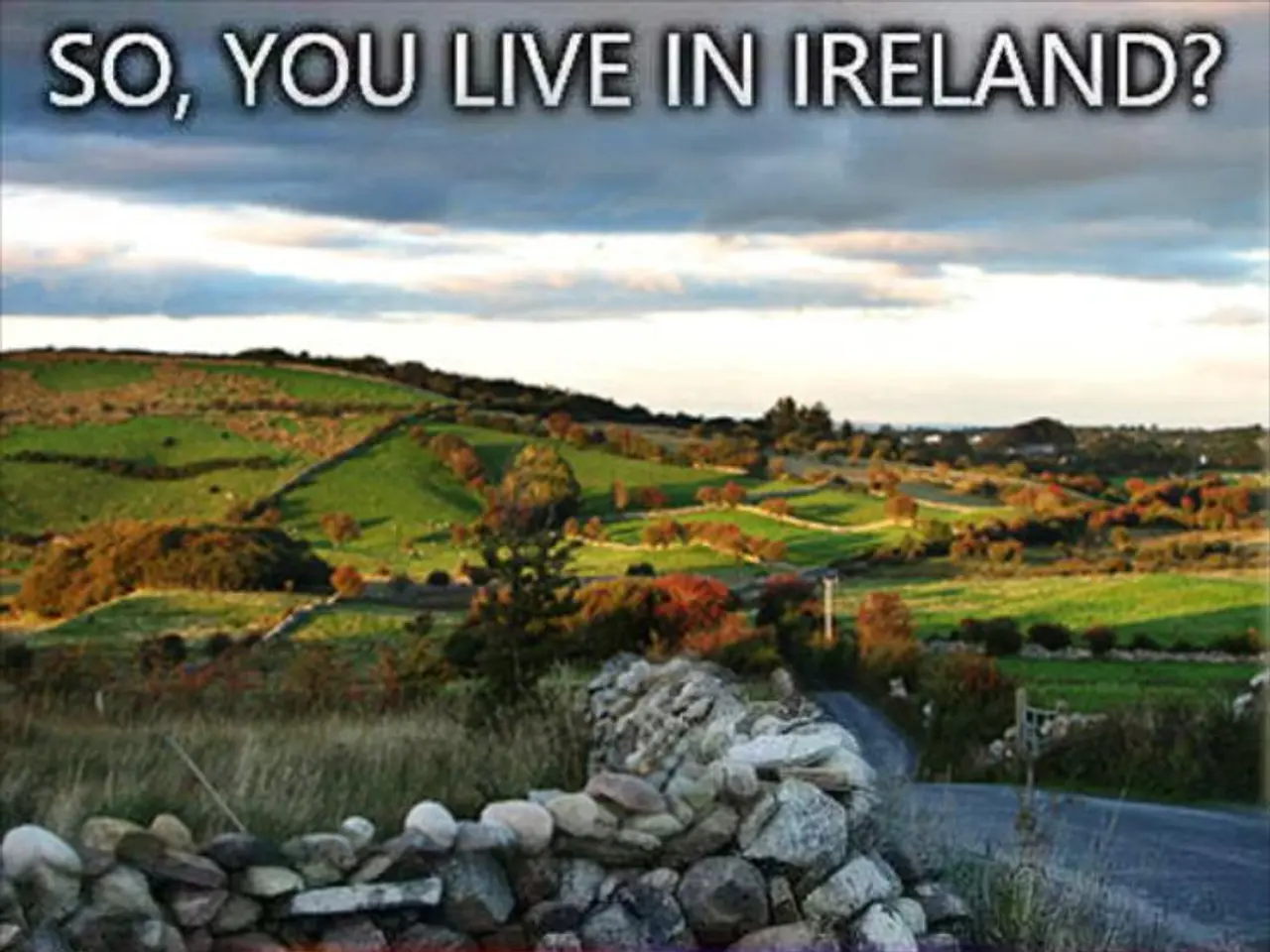US smokes due to Canadian wildfires; however, Republicans call for action – yet, not regarding climate change.
In Canada, wildfires have been burning at unprecedented rates since 2023, with over 700 wildfires currently raging across the country[1]. This escalating wildfire crisis, according to climate scientists, is largely due to climate change[2][3][4].
The annual average temperature in Canada has warmed significantly, especially in northern and prairie regions, contributing to drier forests and longer wildfire seasons that now can extend nearly year-round[4][5]. This warmer, drier climate has made Canadian wildfires larger, more intense, and more difficult to control[1][2].
Extended hot and dry spells, combined with climate-driven factors like seasonal wind patterns, have exacerbated the situation[1][2]. As a result, smoke from these wildfires frequently travels south, causing widespread air pollution across the United States. For instance, smoke from nearly 900 Canadian fires in 2023 triggered air quality alerts affecting up to 70 million people in the eastern U.S.[2][3][5].
Climate change also appears to be reducing the frequency of cool air cold fronts from Canada that used to clear smoke for the U.S. Northeast, allowing wildfire smoke to linger and worsen air quality there[3].
Canadian wildfire management acknowledges that fire will become a more persistent presence due to climate change. Efforts are shifting toward resilience and adapting communities to coexist with this increased fire risk, rather than solely trying to extinguish every fire[1].
Most wildfires in Canada are started by people, and lightning is the culprit in many of the fires, especially in remote areas[6]. Some experts suggest that prescribed burns to clear underbrush and other ignition sources could help, but they aren't practical or possible in some forests and prairies that are burning[7].
The U.S. administration's stance on climate change has been a point of contention. The administration has proposed to revoke the scientific finding that carbon dioxide and other greenhouse gases endanger public health and welfare, cancelled grants for renewable energy projects, and ordered the U.S. to withdraw from the Paris Climate Agreement[8].
Democratic Rep. Chellie Pingree of Maine has criticized Republican lawmakers for not addressing the wildfire crisis by acting on climate change[9]. On the other hand, the GOP congressional delegations from several states, including Michigan, Iowa, New York, North Dakota, Minnesota, and Wisconsin, have issued statements demanding more forest thinning, prescribed burns, and other measures to prevent wildfires[10].
Climate scientists argue that the U.S.'s contribution to heat-trapping gases from burning fossil fuels like coal and gas is a significant factor in more intense heat waves and droughts, which in turn set the stage for more destructive wildfires[11]. However, the lawmakers have not acknowledged the role of climate change in the increased frequency and intensity of wildfires[12].
Overpeck, a climate scientist from the University of Michigan, advocates for collaboration between the U.S. and Canada on climate change solutions, stating that "our smoke is their smoke, their smoke is ours"[13]. In response, the Canadian government recently announced almost $46 million in funding for wildfire prevention and risk assessment research projects[14].
Ken McMullen, president of the Canadian Association of Fire Chiefs, stated that something has changed, with sloughs and basins drying up and water that once lapped at people's back doors in Canada's lake communities now often hundreds of feet away[15]. McMullen, who has advocated for a Canadian forest fire coordination agency to help deploy firefighters and equipment where they're needed, stated that as for stopping worsening fires, "I don't think there's much they can do"[16].
References:
- CBC News
- The New York Times
- The Washington Post
- Environment and Climate Change Canada
- NASA
- CBC News
- The Washington Post
- The New York Times
- CNN
- The Washington Post
- The New York Times
- The Washington Post
- The New York Times
- CBC News
- The Washington Post
- The New York Times
- The wildfires in Canada, caused by human activity and lightning, have escalated since 2023, with over 700 fires currently burning, a trend climate scientists attribute to climate change.
- Climate change has made Canadian wildfires larger, more intense, and harder to control due to warmer and drier weather conditions in the country.
- The smoke from these wildfires often travels south, affecting air quality across the United States, particularly in the eastern regions.
- In response to the wildfire crisis, the Canadian government has invested almost $46 million in funding for wildfire prevention and risk assessment research projects.
- Meanwhile, climate scientists argue that the United States' contribution to heat-trapping gases from burning fossil fuels is a significant factor in more destructive wildfires, but lawmakers have yet to acknowledge the role of climate change in the increased frequency and intensity of wildfires.
- As the founder of environmental-science at the University of Michigan, Overpeck proposes collaboration between the US and Canada on climate change solutions, stating that "our smoke is their smoke, their smoke is ours."






